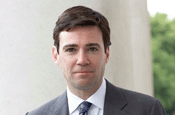
Following yesterday’s publication by Ofcom of its proposals for the future of PSB, Burnham told delegates at an RTS digital media conference this morning (Friday) that the Government will work on a twin-track approach with Ofcom to finalise plans.
He was coy about Government plans to help shore up Channel 4’s finances – yesterday Ofcom said Channel 4 faces a potential funding shortfall of £100m per year as it suffers from declining ad revenues.
All options are open at the moment, Burnham said, but it is important that we are all prepared to accept we have to make trade-offs. There are no presumptions at this stage about the outcome, or about the nature or level of future intervention – and certainly no presumption about any future level or use of the licence fee. There are no easy options and none without consequences. The coming weeks are about deciding on solutions.
However, he did concede that there will be changes, with decisions taken as quickly as possible to end the uncertainty.
Yesterday, Ofcom announced its proposals for the future provision of PSB in the UK. Chief among its proposals was that ITV could be allowed to cut its public service programming obligations significantly from next year.
In addition, Ofcom proposed three models for the future provision of PSB. One option, a so-called evolution model, would see the BBC, ITV1, Channel 4 and five continue to have PSB obligations.
A second option would have the BBC and Channel 4 receive public funding and regulatory assets, while a third option, called a competitive funding model, would see funding to provide public service content to complement the BBC opened up to competition. A wide range of providers (in addition to ITV1, Channel 4 and Five) such as online providers, multichannel broadcasters, or other media organisations, could all bid.



_1.jpg)
.jpg)
